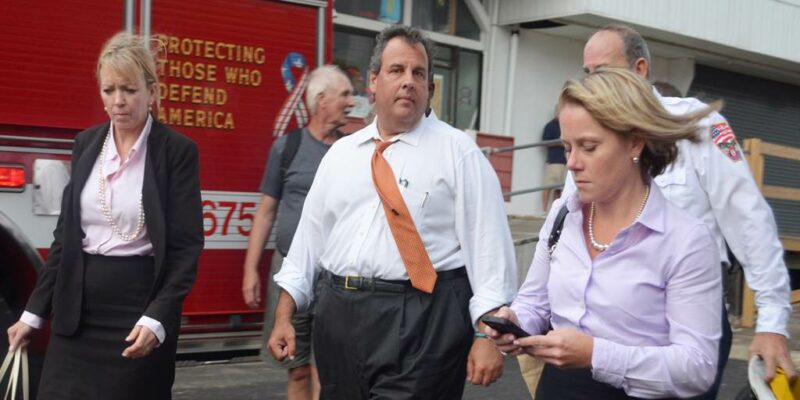MORRISTOWN, NJ – Former New Jersey Governor Chris has made his campaign message one that focuses solely on attacking former President Donald J. Trump. So far, it’s helping the former governor become a hero to the American left and the anti-Trump Republicans, but it’s not helping him where he needs it most, with Republican voters.
Christie has not hidden his agenda. To defeat Trump, he needs to defeat Trump and he’s doing it the only way he knows how personal attacks and non-stop coverage on Democrat-leaning media networks night and day.
The only problem with his plan so far is that he is angering die-hard Trump supporters who see him as nothing more than a babbling talking head whose only plan is to do a full-court press on Trump at every chance.
For many, the show is getting old, and it’s not pulling Christie out of the bottom of the barrel.
Christie’s polling numbers have doubled since his full scale war against the former President. He went from 1% to 2% in the latest poll by The Economist/YouGov last week.
Trump is still polling at nearly 50% with Ron DeSantis trailing at 20%.
According to the poll, Christie’s biggest supporters are those making over $100k. He polled at 0% with voters under 30.
The former governor, who left office with one of the worst approval ratings in New Jersey history also trails behind Nikki Haley, Mike Pence, Tim Scott and Vivek Ramaswamy.
Still, Christie is hopeful that he will emerge at some point at the top of the pack.
The initial connection between Chris Christie and Donald Trump dates back to the 2016 presidential campaign. As a Republican candidate himself, Christie ran against Trump, but after suspending his campaign, he surprised many by endorsing Trump’s bid for the presidency. This endorsement, along with Christie’s subsequent role as a key advisor to Trump during his campaign, signaled the beginning of their political alliance.
The relationship between Christie and Trump faced a significant challenge in the form of the Bridgegate scandal. In 2013, it was revealed that several members of Christie’s administration had orchestrated lane closures on the George Washington Bridge, causing massive traffic delays as a form of political retribution. Despite denying any involvement, the scandal tarnished Christie’s reputation and strained his relationship with Trump, who distanced himself from the controversy.
Following Trump’s successful presidential campaign, Chris Christie played a crucial role in his transition team. As the leader of the team, Christie worked on developing policy agendas and assisting with the smooth transition of power. However, despite his significant contributions, Christie was later removed from the transition team, with reports suggesting internal disagreements and shifting dynamics within Trump’s inner circle.
While Christie continued to support Trump during his presidency, there were instances where differences of opinion and policy emerged between the two. Notably, Christie publicly disagreed with Trump’s response to the white supremacist rally in Charlottesville, Virginia, in 2017, highlighting the challenges of maintaining a strong alliance amid divergent viewpoints.
The two sparred over who gave who COVID-19 after a debate prep at Trump’s Bedminster Golf Course in prior to the 2020 election.
The two men both accused each other of spreading the virus.

